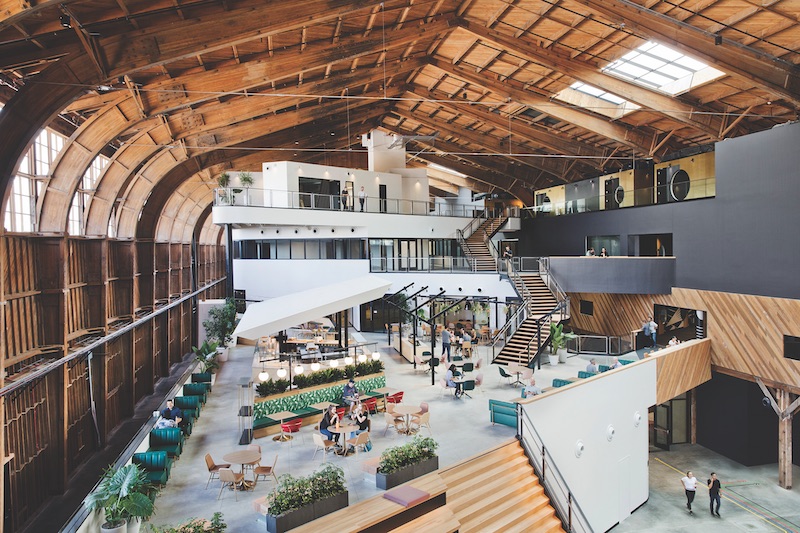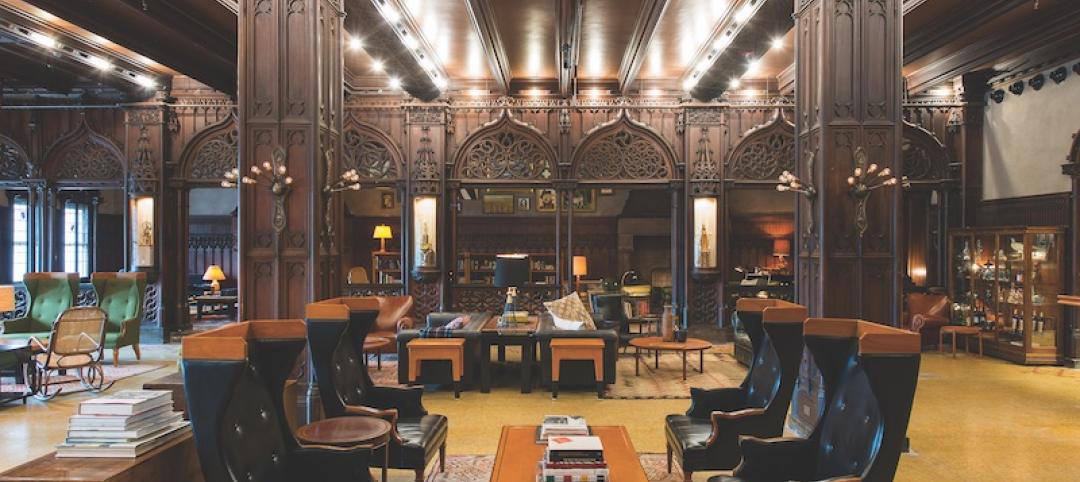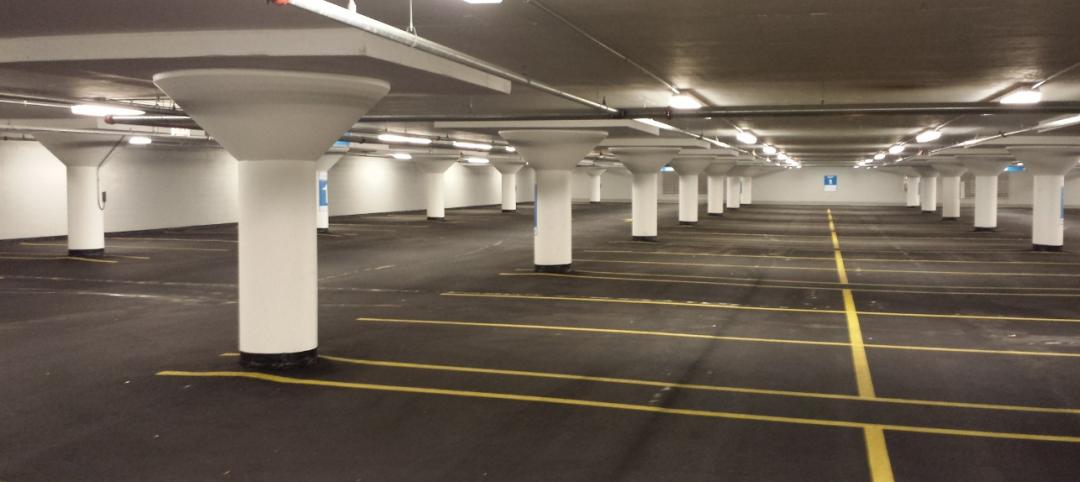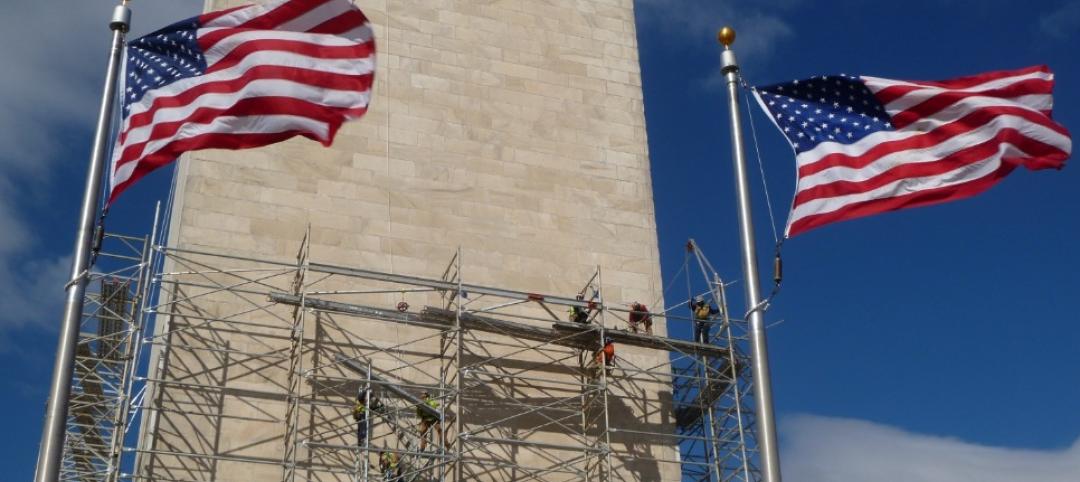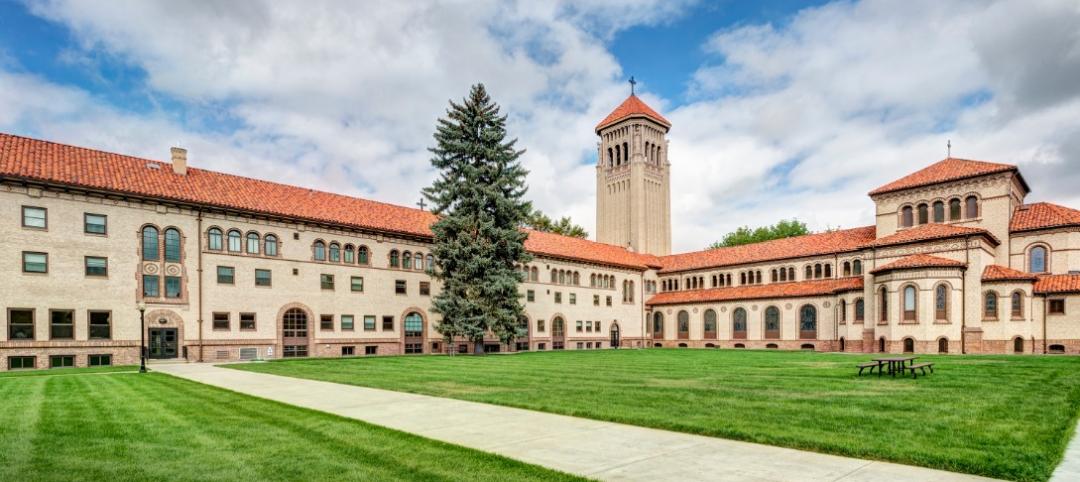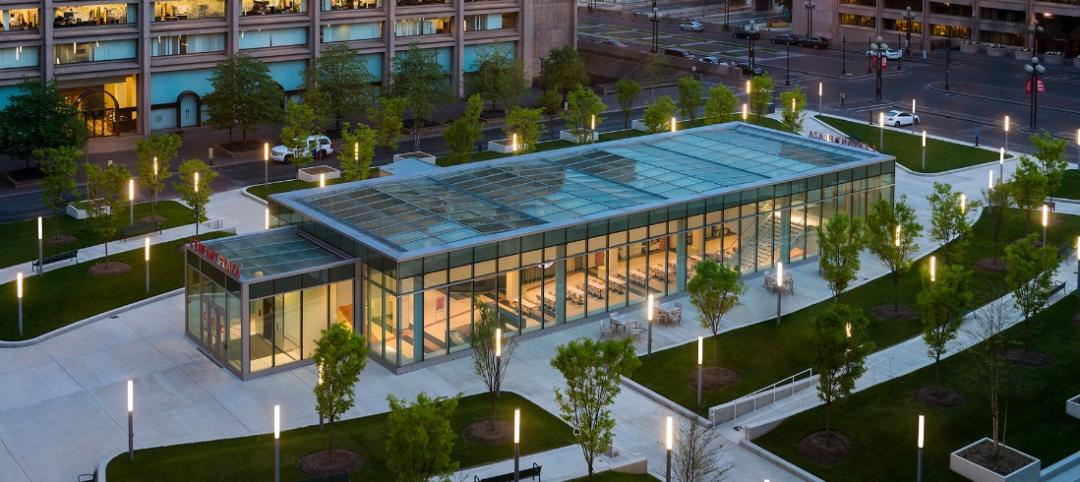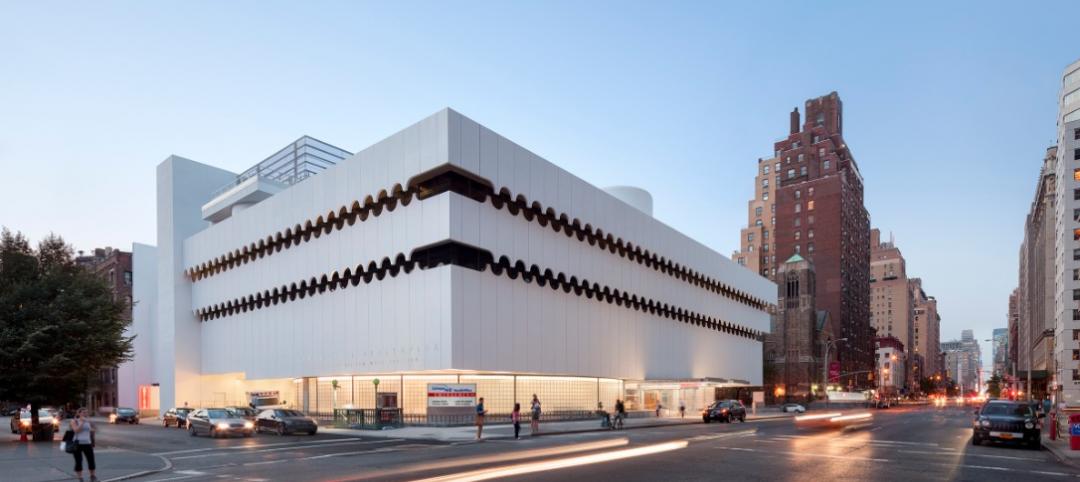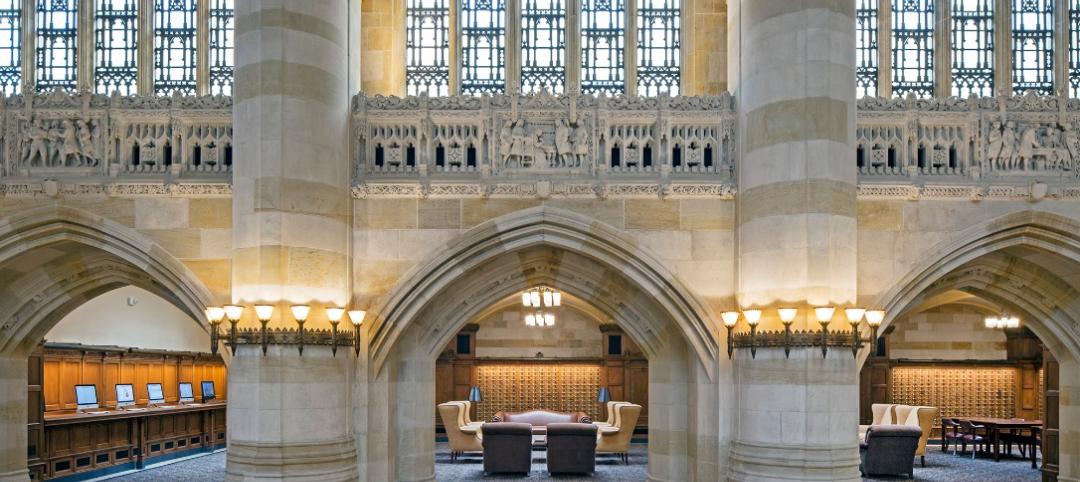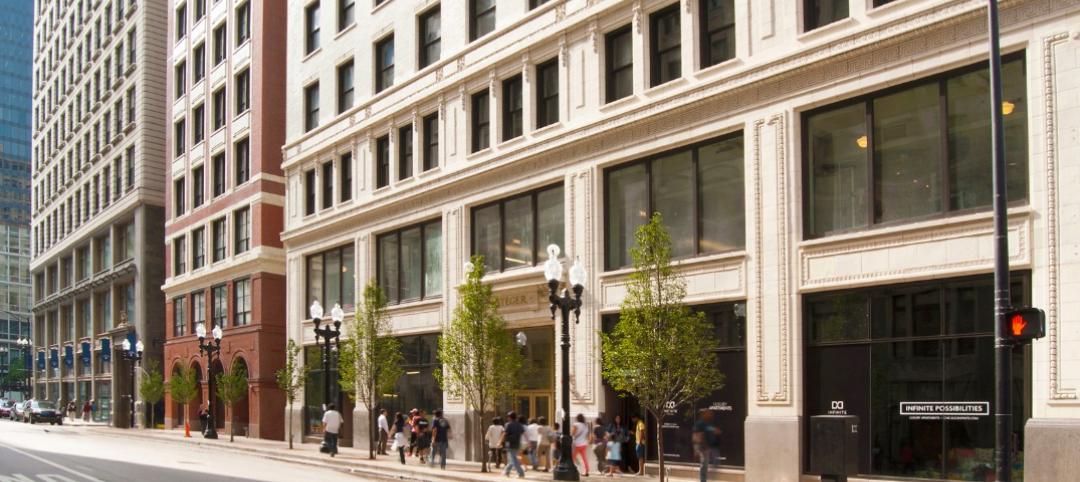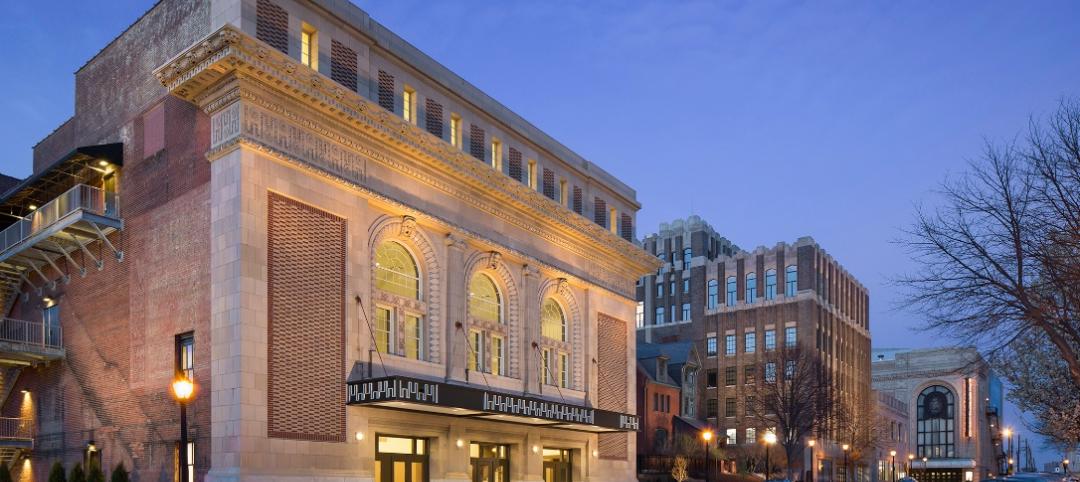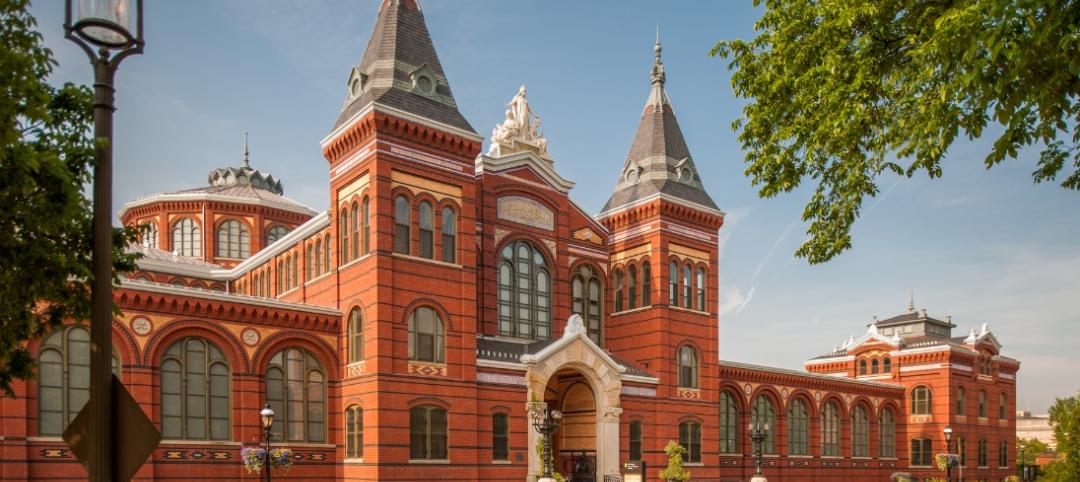Since 2016, Google has leased the seven-story, 750-foot-long hangar where, in 1943, Howard Hughes housed his all-wood-body Hercules IV airplane, the “Spruce Goose.”
The project team recreated this space into a four-story building within a building comprised of office, meeting, and event areas, as well as employee amenities, which unify the existing campus.
The hangar’s original 75-foot-high glulam arches and wood sidings were preserved and exposed to the interior. Twenty thousand three-foot-long, half-inch-diameter screws secure the arches and wood structure. The all-wood spine that supports the ceiling was deconstructed and rebuilt with noncombustible materials that were reclad with refurbished wood panels.
The project’s complexity included running six miles of conduit underground around 1,500 piles.
To promote user engagement, the main circulation on each level was formed into a zigzag, bridging the spine and two sides of the hangar. A “boardwalk” connects the interior structure from the ground floor to the third level.
HONORABLE MENTION
BUILDING TEAM ZGF Architects (submitting firm, architect) Google (owner/developer) Arup (SE, MEP) MATT Construction (GC, CM) DETAILS 450,000 sf Total cost Confidential Construction time August 2016 to July 2018 Delivery method CM at risk
Related Stories
Reconstruction Awards | Nov 11, 2016
Exclusive Chicago club re-emerges as a boutique hotel
Built in 1893 for the World’s Columbian Exposition, the CAA was an exclusive social club founded by leading figures in American sports and commerce.
Reconstruction Awards | Dec 1, 2015
Massive Chicago parking garage gets overdue waterproofing
Millennium Lakeside Garage, the largest underground parking facility in the U.S., hadn’t been waterproofed since the 1970s. The massive project took nearly 2½ years and 33,554 man-hours.
Reconstruction Awards | Nov 30, 2015
Washington Monument restored after 2011 East Coast earthquake
This restoration and repair project, which was completed under budget and eight days early (despite several setbacks), involved re-pointing 2.5 miles of mortar joints, repairing 1,200 linear feet of cracks, and installing 150 sf of Dutchman repairs. Construction took place from November 2011 to May 2014.
Reconstruction Awards | Nov 30, 2015
Denver's 107-year-old seminary campus modernized
The scope of the project included the seminary dorms, library, and chapel, all of which posed their own set of obstacles.
Reconstruction Awards | Nov 24, 2015
Center of I.M. Pei-designed plaza part of Washington redevelopment
The L’Enfant Plaza, a three-story below-grade mall, was renovated to include a new glass atrium pavilion and a 40-foot-long, interactive LED.
Reconstruction Awards | Nov 24, 2015
Manhattan's first freestanding emergency department a result of adaptive reuse
The Lenox Hill Healthplex, a restoration of the Curran O’Toole Building, has glass-block walls and a carefully preserved exterior.
Reconstruction Awards | Nov 19, 2015
Nave restored at Yale’s Sterling Memorial Library
Turner Construction and Helpern Architects revived the 150-foot-long nave, which was embellished with stained glass windows by G. Owen Bonawit, stone carvings by René P. Chambellan, and decorative ironwork by Samuel Yellin.
Reconstruction Awards | Nov 19, 2015
Infinite Chicago redevelopment bridges past to present
The renovation of three historic downtown buildings—the Gibbons and Steger Buildings and Pickwick Stables—includes a multi-level concrete walkway connection.
Reconstruction Awards | Nov 18, 2015
Sun Theater serves the youth of St. Louis
Lawrence Group and property owner TLG Beaux Arts raised $11 million to restore the 26,000-sf theater into a modern performance venue.
Reconstruction Awards | Nov 17, 2015
Smithsonian Institution’s Arts and Industries Building again an exposition and museum space
After removing decades’ worth of unfortunate additions to expose 17 historic interior spaces for the National Historic Landmark, the Building Team zoned in on the client’s key concern.


